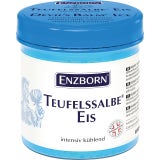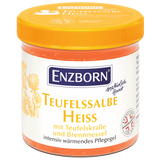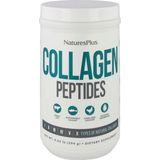Fatburning: Myths, Tips & Tricks
Whether or not physical activity attributes to fat burning is still a controversial topic of discussion. Regretfully there are still many misconceptions surrounding this issue.
Let's start by looking at what exactly fat burning is. The technical terminology is fatty acid oxidisation. During this process, fat is split into fatty acids that are utilised in the metabolism of fat to provide the body with energy.
The metabolism does not only convert fat into energy, but it is also converted into glucose. The fat burning proportion in metabolism is dependent on the nature and strength of the muscles. More muscles mass results in more fat being burnt.
Optimal fat burning occurs at a heart rate frequency of approximately 65-75 percent. This should be calculated using ergospirometry or performance diagnostics. Methods such as "220 minus age" is too inaccurate.
The most important factor to keep in mind in order to lose weight is a negative energy balance. A negative energy balance allows fat burning over a longer period of time, and refers to less calories being made available than required by the body. This can be achieved when the energy consumption is increased i.e. working out, or food intake is decreased.
Myths:
- Fat burning is not equivalent to fat loss: Fat loss refers to the reduction of stored body fat. The fat burning is particularly important during exercise when fat is broken down into fatty acids for energy.The afterburn effect refers to the amount of energy required to repair the body after intense workouts. This burns an additional 50-100kcal, depending on how intense the workout was.
- Fat burning pulse: The range in which fat burning is at its peak, does not exist. The fat burning process occurs immediately. However, one should exercise caution when it comes to carbohydrate intake. Carbohydrates increase the insulin level, which reduces fat burning by 35 percent.
- Fat metabolism training and fat loss workouts are not the same: the fat metabolism training is not about losing weight, but rather incorporated for improved long-term endurance whereby energy provision for the muscles is economised, and therefore runs more efficiently.
- An increase in fat loss by eating certain foods, in order to burn fat quickly is a myth. Regardless of your food intake before, it is important to reduce the intake of carbohydrates during exercise.
Tips & Tricks:
- Weigh loss will only occur if more calories are used than required by the body (keyword: negative energy balance). However, when the body receives too little calories, it switches to sleep mode, which results in extra fat being stored once again. This is better known as the yo-yo effect.
- In order to reduce body fat, regular exercise is essential. It is best to combine aerobic exercise and strength training. Proper intensity should be used during aerobic exercise.
- Fat burning can be increase by using short, intense interval training sessions. For example, incorporate short sprinting intervals when running.
- Generally, longer workouts are better. However, if you have little time, you can also incorporate short and more intense workout session.
- Carbohydrates should be avoided two hours before exercise, as they increase insulin levels and thus block fat burning.
- It is always a good idea to have something to eat after a workout. This meal should be low in fat and rich in protein.
- More protein in relation to carbohydrates should be consumed in order to lose weight.
- It is imperative to consume a lot of fluids.
- Dinner Cancelling: Whether or not a meal is eaten in the evening should depend solely on the energy balance. If the energy balance is positive, dinner can be skipped. If your food intake was low during the day and your workout intense, a meal can be enjoyed in the evening. The timing of food intake is not that important.
Latest reviews
-
 5.0 (1)
5.0 (1)ENZBORN Pretty Feet Cream, 75 ml
-6%- Cream-gel consistency
- With urea, hawthorn, jojoba oil & allantoin
- Absorbs quickly & does not stick
€ 5,51 € 5,89 (€ 73,47 / l)Delivery by April 17
-
 5.0 (4)
5.0 (4)ENZBORN Icy Devil's Salve, 200 ml
- Moisturizes
- Cooling & refreshing
- Can be used with insect bites
€ 8,09 (€ 40,45 / l)Delivery by April 17
-
 € 8,09 (€ 40,45 / l)
€ 8,09 (€ 40,45 / l)Delivery by April 17
-
 4.7 (3)
4.7 (3)NaturesPlus Collagen Peptides, 294 g
- 6 different types of collagen
- Sustainably obtained raw materials
- With an enzyme mixture
€ 38,99 (€ 132,62 / kg)Delivery by April 17
